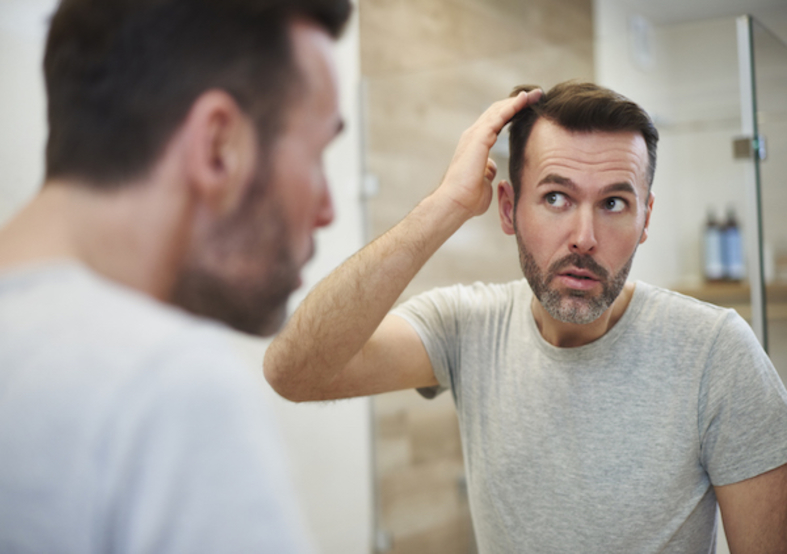
September is Alopecia Areata Awareness Month, making this is a great time to gain a better understanding of the condition and provide some tips for those who experience hair loss.
At Advanced Dermatology and Laser Institute of Seattle, we know how hair loss can affect your confidence and self-image. Dr. Steven Greene is a board-certified dermatologist who has successfully helped countless patients restore their hair and self-esteem over the course of his decades-long career.
What Is Alopecia Areata?
Alopecia areata is an autoimmune disorder that attacks hair follicles, causing hair loss on the scalp, face, and other parts of the body. Approximately 6.8 million Americans suffer from the condition, including men and women of all ages, genders, and ethnicities.
There are different types of alopecia areata, the three most well-known being:
- Alopecia universalis: Total hair loss on the scalp, face, and body
- Alopecia totalis: Complete hair loss on the scalp
- Alopecia areata patchy: One or more small, coin-sized patches of hairlessness on the scalp or other parts of the body. This is the most common type of alopecia areata.
What Causes Alopecia Areata?
A number of factors can contribute to the development of alopecia areata. The condition causes your immune system to mistake your body’s normal cells for foreign invaders. When this occurs, your immune system attacks these cells.
So what triggers the immune system to attack the healthy hair follicles of sufferers of alopecia areata? Scientists aren’t exactly sure. In fact, it is unknown if these triggers occur first within the body, from a bacteria or virus, or outside the body, by an environmental trigger, or a combination of both.
Occasionally, alopecia areata is associated with other autoimmune disorders, such as:
- Lupus
- Vitiligo
- Thyroid disease
- Ulcerative colitis
- Rheumatoid arthritis
Alopecia areata sometimes occurs within family members, suggesting that genetics may play a role in the condition.
How Is Alopecia Areata Treated?
There is currently no cure for alopecia areata. However, the condition can be managed with dermatological injections and topical creams. Taking supplements with hair-boosting folic acid and biotin can also be beneficial aspects of an alopecia sufferer’s daily condition-management routine.
Another way to manage alopecia areata is through nutrition. Some foods that can help hair growth include:
- Seeds
- Nuts
- Avocados
- Sweet potatoes
- Fatty fish, such as salmon
- Spinach
- Berries
- Eggs
The best way to find out which treatment strategy is best for your unique condition is to meet personally with Dr. Steven Greene in a confidential consultation at our office. During this initial consult, Dr. Greene will assess your condition and work with you to determine an effective treatment plan.
Schedule Your Alopecia Areata Consultation Today
If you experience the signs of alopecia areata, or are interested in learning more about the hair restoration options available at Advanced Dermatology and Laser Institute of Seattle, contact our office today online or at 206-402-4797 to schedule a consultation. We serve patients in the Seattle, Washington area.
